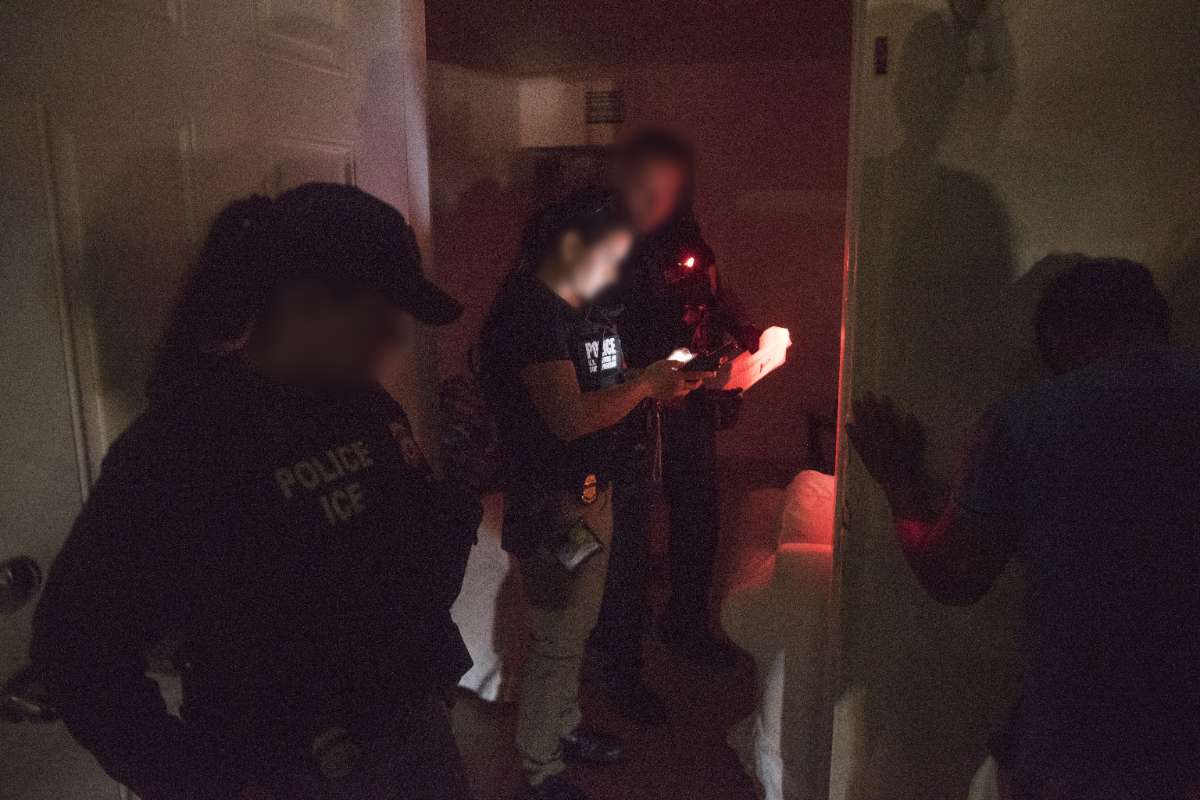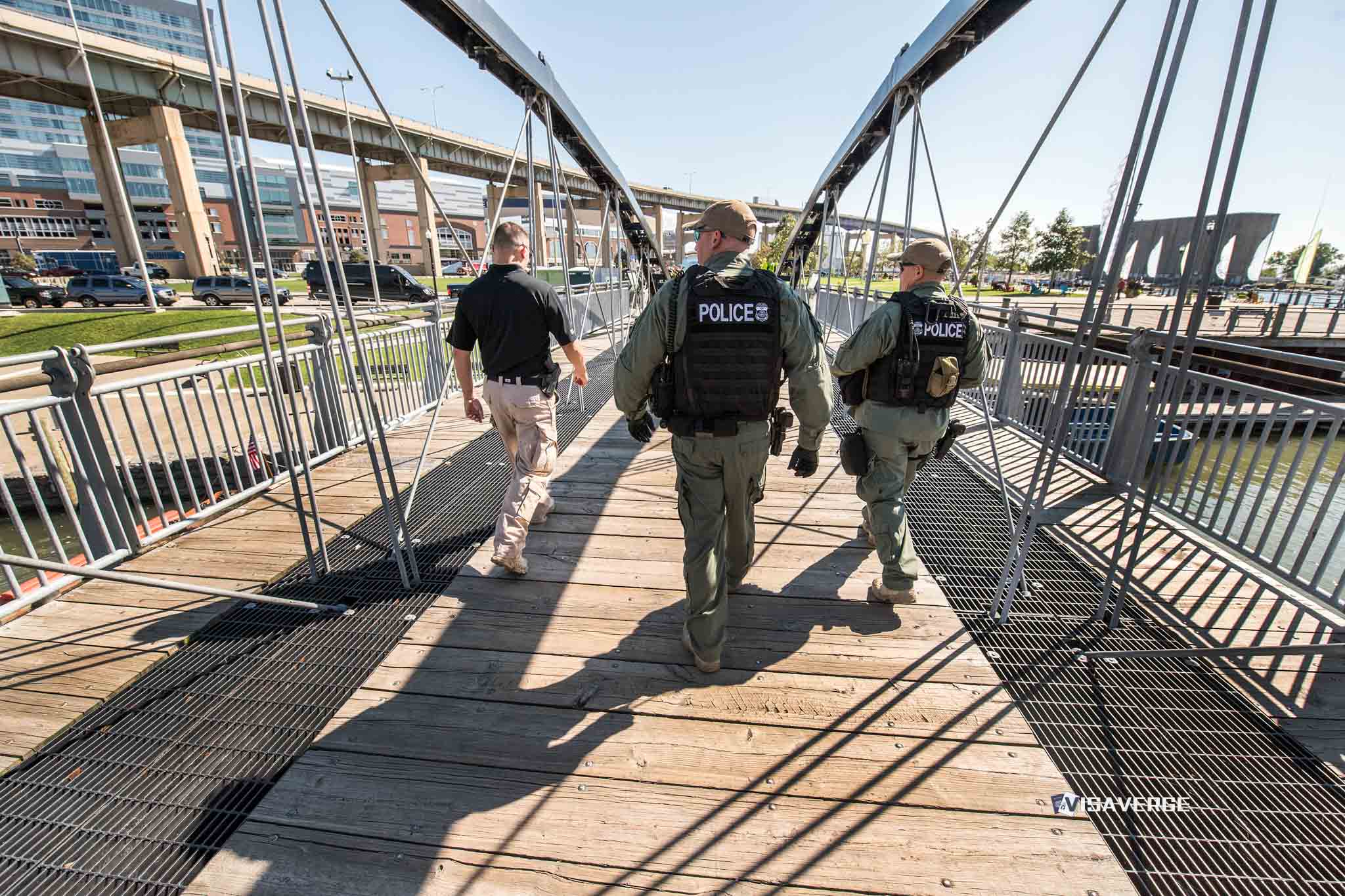(UTAH) The appointment of a Utah-based military lawyer with no immigration background as a temporary immigration judge is drawing attention to a wider shift inside the Department of Justice, which has opened the doors of the immigration bench to attorneys with little or no experience in this complex field.
According to recent announcements, the Department finalized new rules in August 2025 that expand eligibility for the role of temporary immigration judge (commonly called a TIJ) to any licensed attorney, including active-duty and reserve military lawyers serving in the Judge Advocates General corps.

What changed and why it matters
The change marks a break from earlier hiring practices that strongly favored lawyers with prior immigration law experience and years of work inside the immigration system—whether as judges, government attorneys, or private advocates representing noncitizens in removal proceedings.
Among the new appointees is Judge Matthew Andrasko, a Utah attorney who spent about a decade as an attorney adviser for the U.S. Air Force before his selection in October 2025 as an immigration judge. His professional history is grounded in military law rather than immigration cases, placing him within a group of newly appointed temporary immigration judges whose primary training comes from service in the armed forces instead of work on asylum claims, deportation defenses, or visa-related disputes.
Scale of the appointments
The Department of Justice has confirmed that it recently appointed 25 temporary immigration judges, and roughly two-thirds of them are military lawyers drawn from the Judge Advocates General branches of the Air Force, Navy, Marines, and Army.
The Executive Office for Immigration Review (EOIR), which runs the nation’s immigration courts, announced on October 24, 2025, that it had appointed 11 new permanent immigration judges along with the 25 temporary immigration judges.
| Appointment type | Number appointed | Notable detail |
|---|---|---|
| Temporary immigration judges (TIJs) | 25 | Roughly two-thirds are military lawyers |
| Permanent immigration judges | 11 | Announced same day by EOIR |
In official biographies released with that announcement, EOIR highlighted the diverse backgrounds of the appointees, stressing prior service in the military, other parts of government, and private practice, but often listing no previous work in immigration law.
Policy rationale and analysis
According to analysis by VisaVerge.com, this pattern reflects a deliberate policy choice to widen the pipeline for the temporary immigration judge role in order to respond to heavy backlogs in the immigration courts, rather than a focus on building deep subject-matter knowledge among adjudicators.
Supporters inside government say the main goal is to reduce the backlog of pending cases by tapping into a pool of disciplined, trial-tested attorneys who can move quickly through crowded dockets. They emphasize the military lawyers’ courtroom experience and discipline, though they have offered few public details about how performance and fairness will be measured.
The new appointments arrive at a time when immigration courts around the country are struggling with heavy caseloads, though the government has not yet released specific data tying the 2025 temporary immigration judge expansion to measurable reductions in pending cases.
Concerns raised by legal groups and advocates
Legal groups, including the American Immigration Council, have raised concerns that many of the new temporary judges lack any record of handling immigration matters before their appointments, even though they are now expected to decide cases that can lead to deportation, family separation, or the granting of protection to people who fear harm in their home countries.
Critics worry that short training periods for these temporary immigration judges will not prepare them to apply the complex mix of statutes, regulations, and court precedents that shape immigration decisions.
- Permanent immigration judges typically receive:
- A lengthy orientation with classroom-style instruction
- Shadowing of experienced judges
- About a year of mentorship before handling full dockets independently
- By contrast, some new temporary immigration judges have reportedly been offered only a much shorter training period, sometimes as little as two weeks, before taking the bench to hear live cases.
Advocacy organizations argue that this compressed preparation risks mistakes in high-stakes hearings, particularly when respondents do not have lawyers and rely on the judge to explain procedures, legal standards, and deadlines that can affect their ability to seek relief.
“Placing judges with brief training on cases that determine removal, safety from persecution, and family unity raises questions about due process and fairness,” say immigration advocates (paraphrased summary of concerns).
Additional legal and procedural questions
Some legal experts have also pointed to potential Posse Comitatus Act problems, because the temporary immigration judge positions rely heavily on active-duty military lawyers who usually must avoid roles that look like domestic law enforcement.
- The Posse Comitatus Act is a federal law that generally restricts the use of the armed forces in civilian law enforcement.
- Critics argue that assigning Judge Advocates General officers to preside over immigration cases comes uncomfortably close to placing active military personnel in a policing role inside the courtroom.
For people with hearings in front of temporary immigration judges, the shift can feel confusing—especially when they learn that the person deciding their case may have spent most of a career handling courts-martial or advising commanders on issues like military discipline, contracts, or international law rather than asylum, visas, or deportation defenses.
Unanswered questions and transparency concerns
The Department of Justice has not publicly detailed:
- How long these temporary immigration judge appointments will last
- How many cases each TIJ will handle
- Whether TIJs might later be considered for permanent roles
- How training, supervision, and performance will be evaluated
This lack of detail leaves both lawyers and respondents uncertain about who will be hearing cases months or years from now.
Official information about immigration courts and judge appointments is available from EOIR on the Department of Justice website at justice.gov/eoir, but the biographies posted there often provide only limited detail about the training or supervision that temporary immigration judges receive once they join the bench.
Final note: What Judge Andrasko’s appointment represents
Judge Andrasko’s path from Air Force legal adviser to immigration judge illustrates how deeply this new policy reaches and how sharply it departs from past practice. The broader shift—opening TIJ roles to attorneys without immigration backgrounds, including military lawyers—raises practical, legal, and fairness questions that advocacy groups, legal experts, and affected respondents say warrant careful scrutiny.
This Article in a Nutshell
In August 2025 the DOJ broadened TIJ eligibility to any licensed attorney, including military JAG officers. EOIR announced on October 24, 2025 the appointment of 25 temporary immigration judges—about two-thirds from military backgrounds—and 11 permanent judges. Officials frame the move as a response to heavy court backlogs. Legal advocates raise concerns about minimal training, lack of immigration experience, Posse Comitatus implications, and insufficient transparency about appointment duration, caseloads, and oversight.








